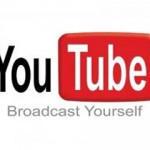 Paris — Sacre bleu! How do you utter Twitter and Facebook in French? Well… French broadcasters will have to think twice before using these words in their programs. In a controversial move the French government has banned the names of both the social media networking sites from being spoken on radio or television, unless they are part of a news story.
Paris — Sacre bleu! How do you utter Twitter and Facebook in French? Well… French broadcasters will have to think twice before using these words in their programs. In a controversial move the French government has banned the names of both the social media networking sites from being spoken on radio or television, unless they are part of a news story.
Surprisingly, France’s Conseil Supérieur de l’Audiovisuel, an independent audiovisual regulatory authority, decreed the terms ‘Persona non Grata’ due to a perception of “clandestine advertising”.
Furthermore, President Nicolas Sarkozy’s colleagues have justified the ban that goes back to a 1992 decree that stipulates that commercial enterprises should not be promoted on news programs, and further says that mentioning such services by name is an act of advertising. Therefore, using the terms “Twitter” and “Facebook” constitutes preferential treatment.

Christine Kelly, spokeswoman for France’s Conseil Superieur de l’Audiovisuel (CSA), explained the ban:
“Why give preference to Facebook, which is worth billions of dollars, when there are many other social networks that are struggling for recognition,” she told L’Express. “This would be a distortion of competition. If we allow Facebook and Twitter to be cited on air, it is opening a Pandora’s Box–other social media networks will complain to us saying, ‘why not us?'”
While that is an important point, it does put a constrain on news stations that want to popularize their Twitter and Facebook pages with viewers, a staple of most media nowadays regardless of borders.
Further, it also restricts those French channels and news stations from developing and associating an online audience–something which is more important as technological advancements gather pace and news becomes more interactive and digital.
Also, broadcasting anchors are henceforth forbidden to refer to both the popular social media networking site and the microblogging phenomenon, unless it is pivotal and relevant to a news item.
But critics highlight the absurdity of such an edict. TechCrunch writes:
By prohibiting French news broadcasters from mentioning Facebook and Twitter it means that the radio and television stations will not be able to urge their listeners or viewers to “follow us on Twitter”, for instance — something that is becoming increasingly visible on other countries’ news channels across Europe and beyond.
According to TechCrunch, rather than referring to any particular social media networking sites, like saying “Find us at Facebook.com/Audi” or follow us on “Twitter.com/Pepsi” brands will have to avert the issue, saying things like “Find us on social networking sites!,” or directing viewers to their community pages and hoping that viewers will just pick up on where to go.
Ex-pat blogger Matthew Fraser attributed the new restrictions to traditional French protectionism when it comes to the spread of American culture.
However, Facebook and Twitter are, of course, American social media networks. In France, they are regarded — at least inherently — as symbols of Anglo-Saxon global dominance — in addition to Apple, MTV, McDonald’s, Hollywood, Disneyland, and other cultural juggernauts. Besides, there is a deeply-ingrained animosity in the French psyche towards Anglo-Saxon cultural domination cannot be disputed; indeed, it has been documented and analyzed for decades.
Nevertheless, sometimes this cultural bitterness finds expression in French regulations and laws, frequently described, and often denounced, by foreigners as protectionism. Similarly, back in 2003, the French banned the use of the word “email” in all government communications and publications.


